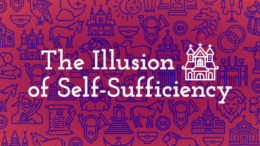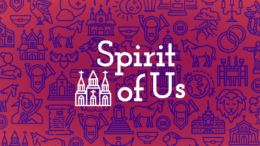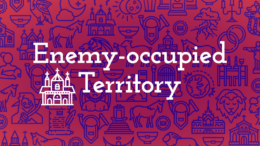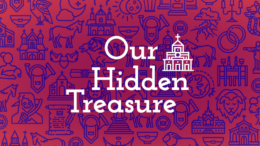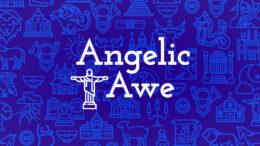Recent Sermons
In addition to sermon audio and video files, many of our sermons have other resources available like extended summaries and study guides. Our archive dates back to 1992 and all resources are free to download and distribute. Most sermons are by our Senior Pastor, Greg Boyd.
In this sermon, Jeremy Duncan, author of the book on Revelation entitled Upside Down Apocalypse, introduces Jesus’ words to the church at Thyatira. He unpacks the meaning of the violent and troubling imagery that we read, and he shows us how these words are meant to wake us up to the ways of the culture that undermine real life that only Christ can give us.
Topics: Love,
Non-Violence,
Power
To the church of Laodicea, Jesus spoke harsh words of confrontation because they depended on wealth for their well-being, living under the illusion of self-sufficiency. In our modern world the pursuit of financial gain is a common illusory trap, one that tell us that it will serve as a foundation for our lives, but, in reality, it cannot be trusted. Only God can be the source of true life.
Topics: Generosity,
Money
Sui Generis is Latin for being of its own genre or unlike anything or anyone else. Each of us has a deep desire to feel special in relation to our Creator and this is the kind of relationship that God wants with each of us.
Topics: Identity in Christ,
Prayer,
Presence of God
This sermon addresses how crowds who are formed around evil agendas serve as seedbeds for Satan. This has been seen throughout history where one crowd sets itself up as possessing the solution at the expense of others. It is based on an “us” vs. “them” mentality. The modern malaise of polarization continues this tactic of the enemy, and as Kingdom people, we must recognize it for what it is and rise above it.
Topics: Conflict,
Politics,
Spiritual Warfare
There is a cosmic war transpiring, one where Satan is in rebellion against God. We are caught up in a battle zone, and we, as parts of the church, have roles to play. This sermon explores how we influence the heavenly realms by being faithful witnesses to God’s character. Through the church, the wisdom of God is made known in mysterious ways that we cannot fully understand.
Topics: Faithfulness,
Non-Violence,
Spiritual Warfare
Satan plays a main role in the book of Revelation. This sermon introduces who Satan is and his origin. It also addresses the primary tactics Satan uses and how we can combat and overcome them.
Topics: Problem of Evil,
Satan,
Spiritual Warfare
This sermon expounds upon the letter to the church at Smyrna, where Jesus offers encouragement to the church which will be facing suffering and persecution. In their struggles, they are told that they are actually rich, contrary to all of the evidence. If they endure, they will receive the crown of life.
Topics: Faithfulness,
Fear,
Pain & Suffering
Jesus addresses the church of Ephesus in the first letter to the seven churches, telling them what they did well and what they need to work on. Specifically, Jesus confronts the fact that they have abandoned the love that they started with. They were good at orthodoxy, but struggled to live a life characterized by love. This is an important message for us today in the midst of perpetual divisiveness over ideological differences.
Topics: Community,
Love,
Relationships
Faith is about capturing a vision of what can be and having a conviction that stirs up action to move toward it. This faith also pertains to the pursuit of racial reconciliation. God has a dream for racial reconciliation that has not yet been fully realized, but as we see God’s vision, we can put our weight toward it, leaning into that vision as if it already has occurred.
Topics: Faith,
Peace,
Reconciliation
John sees a vision of Jesus holding the entire angelic world in his hand, symbolizing his universal authority. This sermon explores the reality of an angelic world by highlighting how our knowledge of the universe is actually very limited. Then we learn the role that angels play and how we can participate in the victory that Jesus won over what the Bible refers to as “spiritual powers” that have held us in bondage.
Topics: Spiritual Warfare
« Previous
1
…
5
6
7
8
9
…
154
Next »


